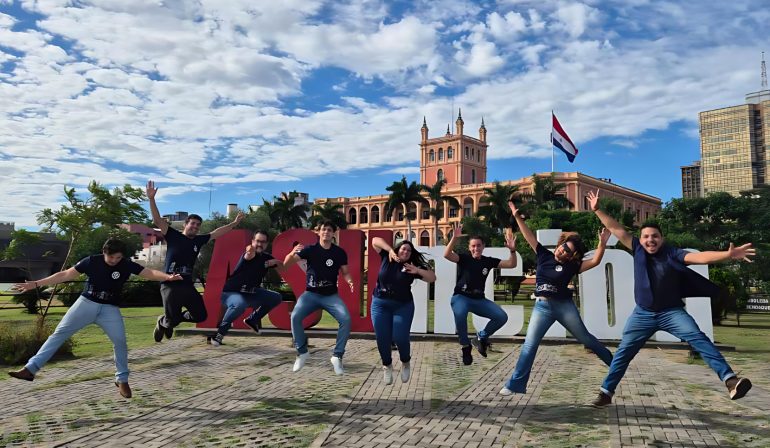In Paraguay, young people have found in Rotaract a lasting platform to serve society and grow as leaders, following Rotary’s arrival in 1927. Today it is part of a binational district with north-eastern Argentina, where clubs develop projects mainly across seven areas of focus. The movement blends service with personal development, ensuring that citizens benefit whilst volunteers strengthen skills.
Origins and expansion
The organisation Rotary International was founded in Chicago in 1905 by Paul Harris, who united professionals from diverse fields in a circle of friendship and service. His vision was to exchange ideas and carry out projects that improved society. What began with one small initiative soon expanded across cities and countries. This growth laid the foundation for a global network that later inspired the creation of the youth wing.
Building on that legacy, Rotary launched Rotaract in 1968 as a programme for young adults. Its name, derived from “Rotary in Action”, reflects the idea of youthful energy channelled into service. From the outset, it offered opportunities for growth through fellowship, and the concept quickly resonated worldwide. Today, it has grown into a global network linking young leaders from different cultures and nations.
Rotary took root in Paraguay in 1927, and Rotaract began expanding locally during the 1970s. Since then, the association has shown steady growth, becoming a platform where service and leadership go hand in hand. Over the years, its clubs have become schools of citizenship and solidarity, empowering young Paraguayans to take action and transform communities.
The seven areas of focus
The movement translates ideals into concrete action. Around the world, its members work mainly within seven priority areas that link grassroots service to global challenges, ensuring that projects are not only meaningful in their circles but also part of a wider cause for change.
They include peacebuilding, disease prevention and treatment, water, sanitation and hygiene, maternal and child health, literacy and basic education, community economic development, and environmental protection. Each provides a pathway for volunteers to turn energy into lasting impact.
In Paraguay, this commitment to the environment resonates with initiatives such as A Todo Pulmón Paraguay Respira, which for fifteen years has championed reforestation and sustainability as a way of shaping the nation’s future.
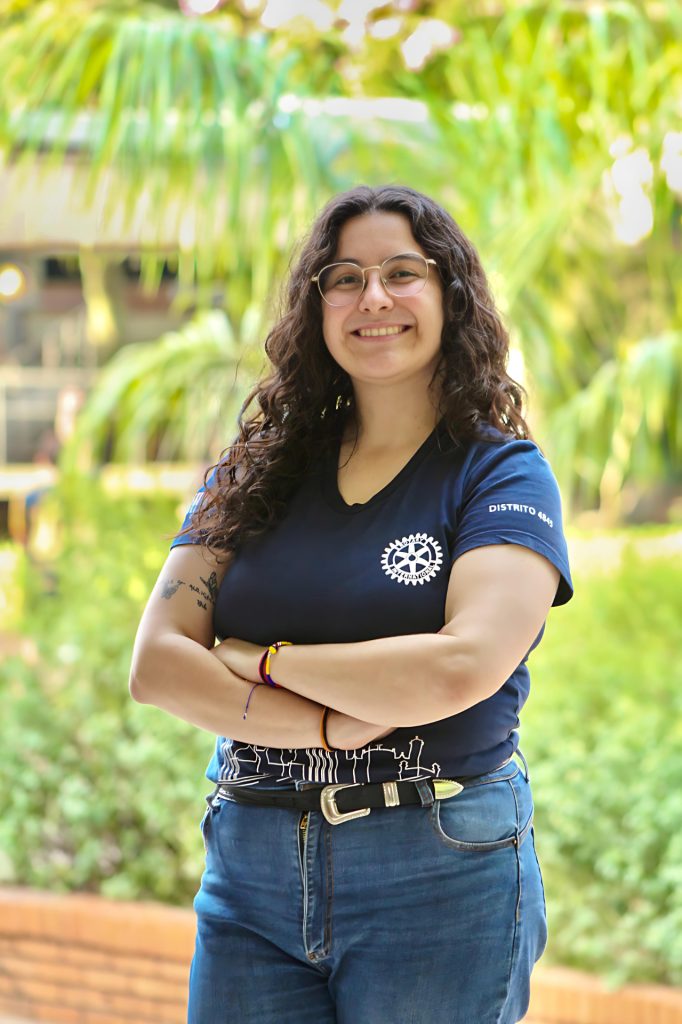
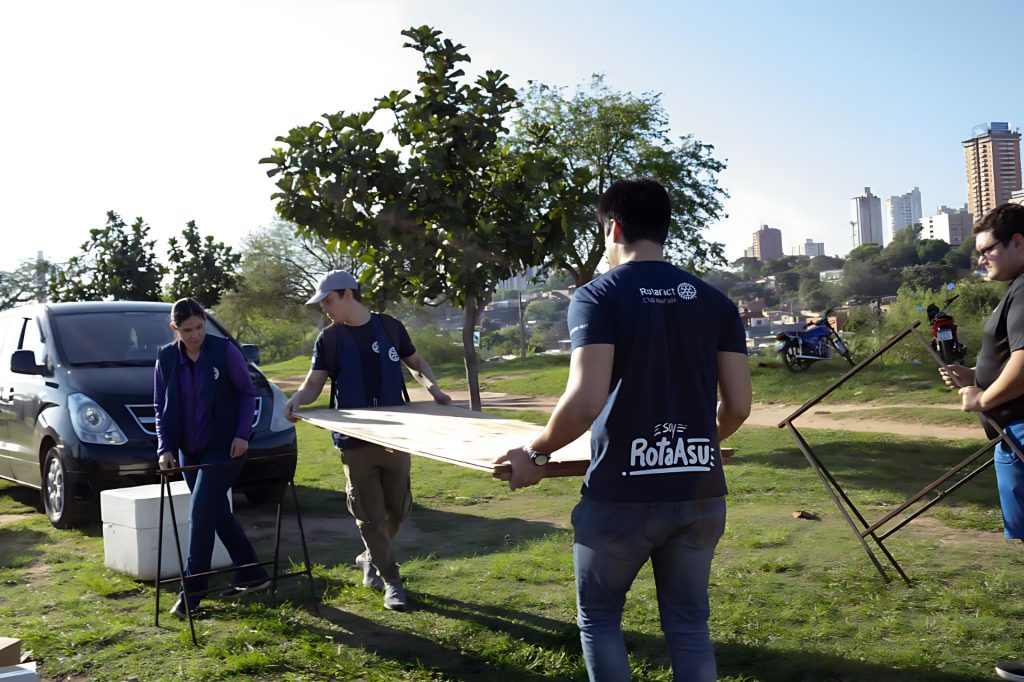
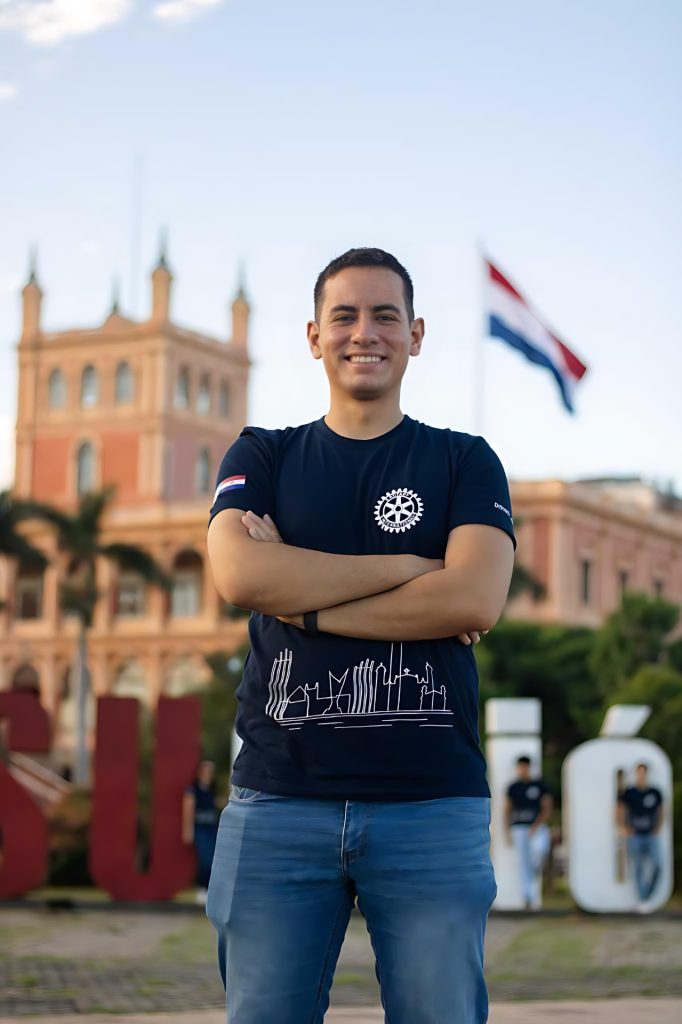
Local projects, global links
In General Bruguez, a community in the Paraguayan Chaco, Rotaract Asunción is addressing the lack of safe water. “We mapped the community, took water samples and are now exploring treatment solutions with Rotary,” explains Andrea Esquivel, President of the club. The project seeks support through regional and global grants, combining infrastructure with community training for long-term sustainability.
At district level, the diversity of work is a strength. “In our chapters, imagination is unlimited,” says José Patricio Acosta, District Representative. From literacy initiatives and blood donation campaigns to environmental clean-ups, local groups adapt the seven areas of focus to their realities, turning volunteer energy into sustainable change.
Andrea values the movement as a school of citizenship. “Here I can bring my agronomy background to environmental projects, but also learn skills such as negotiation and teamwork,” she comments. For her, leadership is shared: “We celebrate achievements and correct mistakes with fraternity.”
José reflects on his own path: “When I joined in 2018, I could not speak in public. After leading projects and chairing meetings, I can now stand before many people with confidence.” His progression to District Representative illustrates how the organisation combines personal growth with responsibility for others.
Structure and vision
The Asunción club currently has 37 affiliates, including 12 aspirants, while District 4845 brings together around 432 volunteers across Paraguay and Argentina. “The goal is to increase membership by 15 to 20 per cent without losing quality,” states Acosta. The group organises their work through committees such as Community and Environment and International Relations, with annual rotations to ensure that learning is shared.
Visibility is also a challenge. “We want society to know who we are and what we do,” Esquivel insists. The leaders stress that their aim is not numbers for their own sake but stronger impact. Sustained growth ensures that projects endure and that every new member finds a place to contribute.
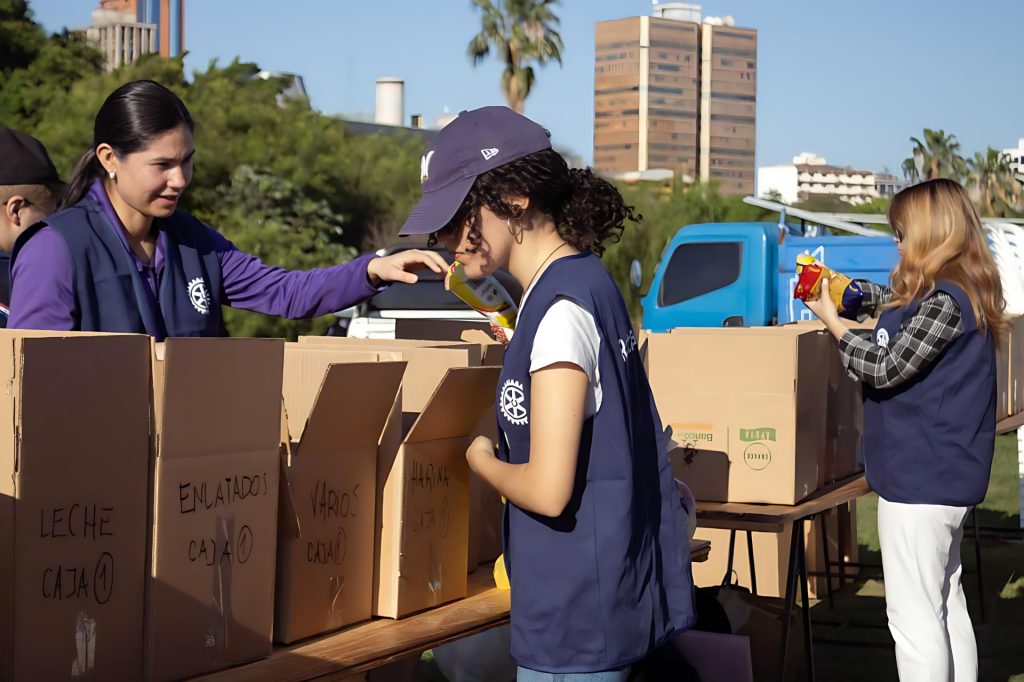
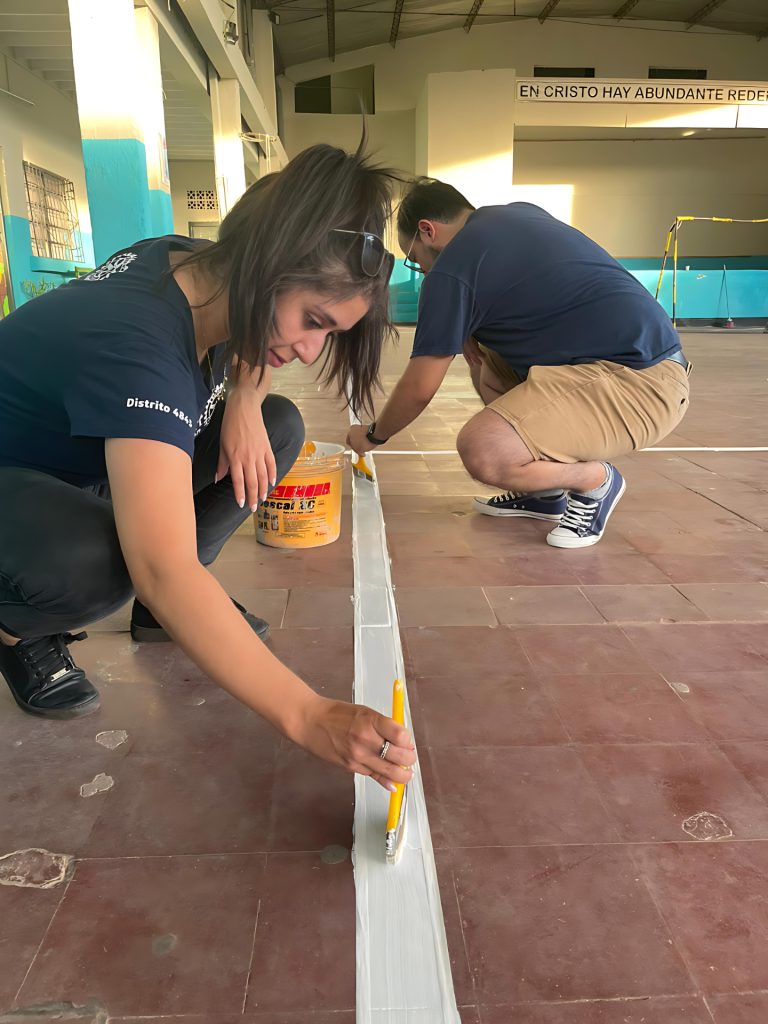
Joining Rotaract
To join the initiative, participants must be at least 18 years old and not older than 35, entering first as aspirants. Full membership generally requires a period of active participation, during which candidates join meetings, training sessions and some projects. The length varies across branches, from a few months to a year, depending on local culture. “The main requirement is wanting to serve,” Andrea adds.
Admission is not only about time or tasks, but also about values. This network uses the “Four-Way Test” as an ethical guide: Is it the TRUTH? Is it FAIR to all concerned? Will it build GOODWILL and better friendships? Will it be BENEFICIAL to all concerned? Candidates are expected to embody these principles in their actions. In this way, involvement reflects not only service, but integrity.
Projects for the new period
For the new period, District 4845 has set itself a major challenge: securing a regional grant to fund a sustainable project. This involves creating a dedicated committee to train sections on requirements and ensure that proposals demonstrate measurable community impact. “Our goal is that at least one project this year is financed through Rotary Foundation grants,” emphasises José Patricio.
Another milestone for this year is a district-wide blood donation campaign involving all Rotaract, Rotary and Interact clubs (for adolescents aged 12 to 18). For the first time, the entire family will coordinate to act on the same date, multiplying reach and visibility. “The idea is that in a single day the whole territory will be working on blood donation,” notes Acosta, underlining how collective action strengthens both impact and identity.
For those interested in joining, contact Rotaract on Instagram or Rotaract WhatsApp.

